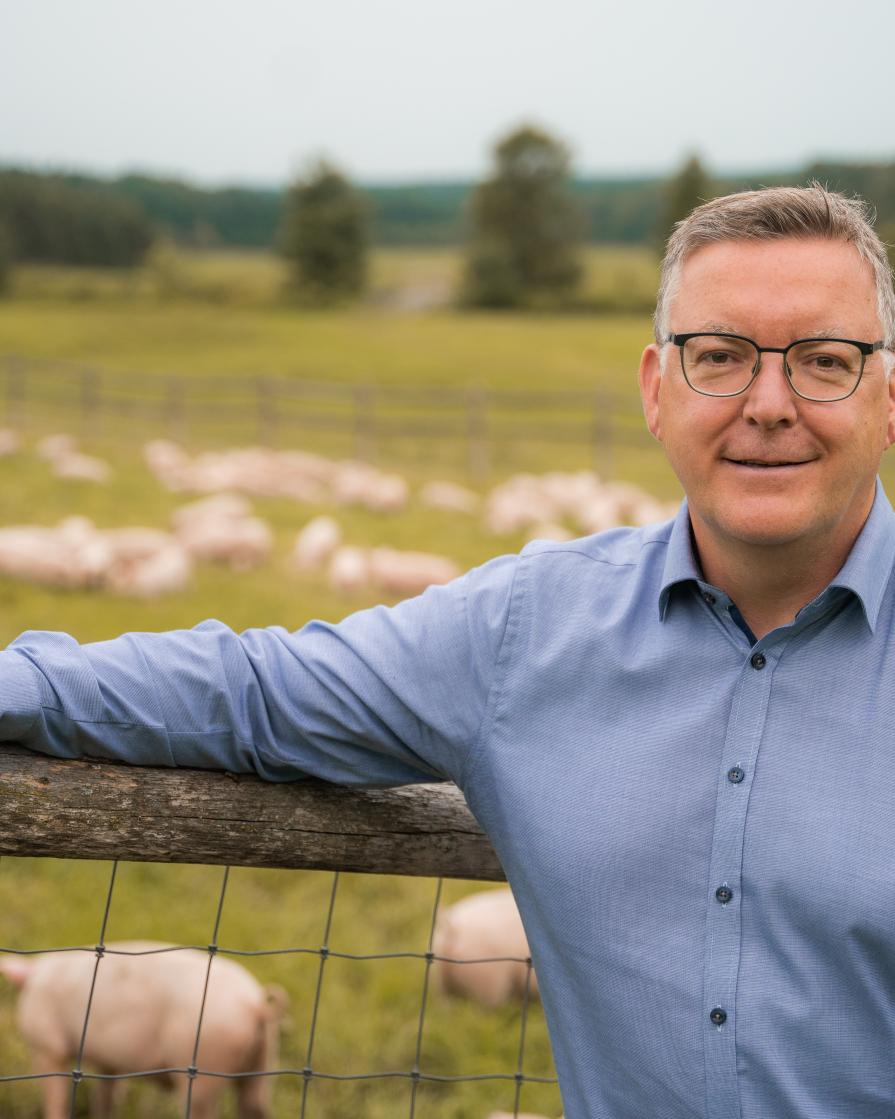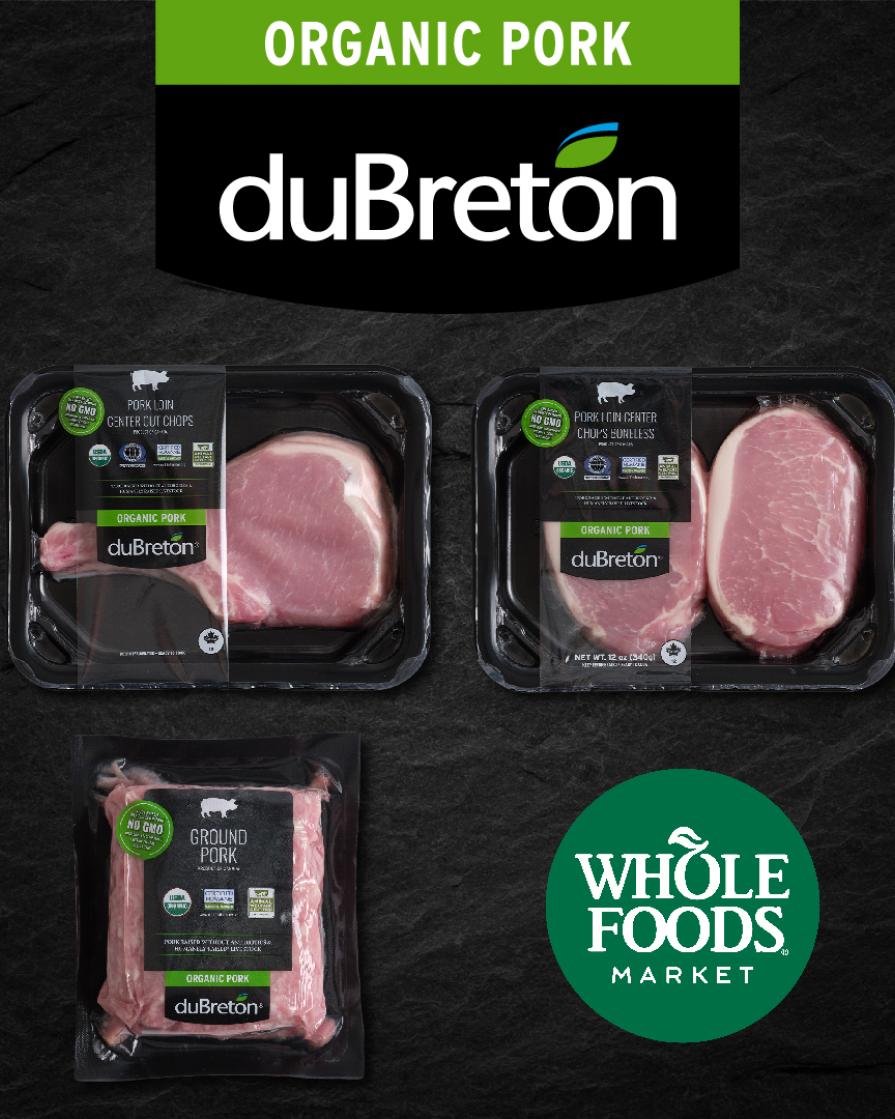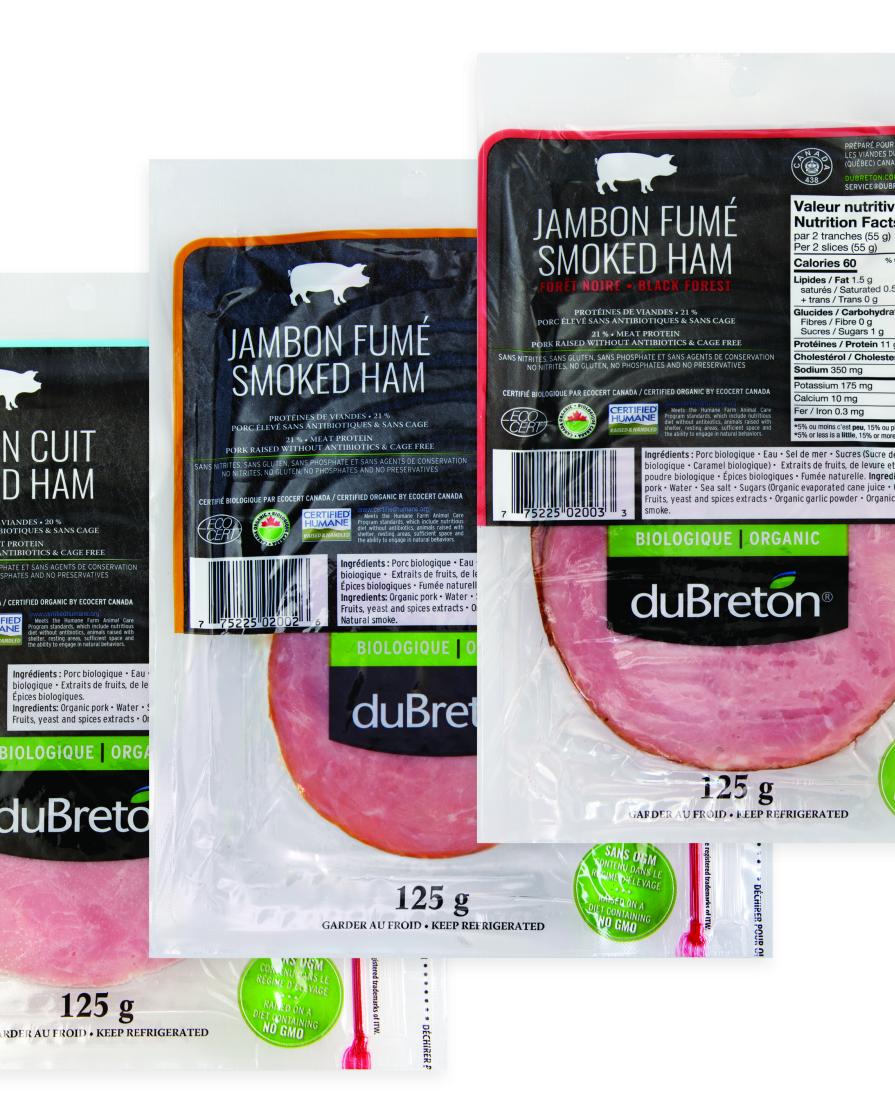Prove it! Canadians want companies to verify their claim regarding the ethical treatment of animals

Pretty labels are not enough. Majority want claims on meat products to be certified.
DuBreton goes beyond basic certifications with Certified Humane® pork that is verified by leading third-party organization that specializes in animal welfare
There are a lot of claims being thrown around in the meat industry: all natural, no antibiotics, humanely raised. But very few companies back up their claims with third-party verification – a reality that Canadians find hard to swallow. A recent survey by MARU/Matchbox of more than 1,000 Canadians revealed the following facts:
• More than two-thirds (67 per cent) are concerned about the ethical treatment of animals
• A full 83 per cent agree that if a brand wants to make claims about animal welfare, then the brand should be verified by an independent, third-party organization that routinely monitors the conditions in which the animals are raised.
Despite many companies referring to humanely raised practices on their labels, there is no legal obligation for these companies to prove their claims via an independent assessment. What’s more, the claim “humanely raised” can be interpreted many ways. In all of Canada, only one pork company – duBreton® – has earned the Certified Humane® distinction on all of its Rustic Farm Pork and Organic products. Awarded by Humane Farm Animal Care, the leading, North American non-profit organization specializing in animal welfare, Certified Humane® ensures that all products meet or exceed the same precise, objective standards for farm animal treatment.
Certification Means No Compromise
While nice claims on pretty labels look good in a grocery store, Canadians want proof of the humane treatment of animals. DuBreton® – third-generation, all-Canadian farmers who have become a leader in humanely raised pork – agrees and encourages consumers to seek out Certified Humane® products. “We were the first pork producer in North America, and are still the only in Canada, to qualify as Certified Humane®,” says Vincent Breton, President of duBreton®. “We believed that earning the Certified Humane® seal was the right thing to do, and would help consumers make educated, informed decisions at the grocery store.”
“Making marketing claims without any verification, causes confusion and dilutes the efforts of those companies who are taking the necessary steps to verify their claims as truthful,” adds Adele Douglass, founding executive director of Humane Farm Animal Care. “It’s all about checks and balances. Overseeing is a vital part of our certification process and our inspectors regularly visit the farms as well as the processing plants to ensure the utmost treatment for the animals.”
As a leader in the field, duBreton® holds numerous certifications for its natural and organic pork. The Certified Humane Raised and Handled® standards protect animals from birth to farm life to processing, and dictate both the animal’s diet and living conditions. “Certified Humane® treatment demands the animals are given a nutritious diet without antibiotics or animal by-products,” says Mr. Breton. “The animals must also be raised in a crate-free environment with free access to shelter, hay, or straw-bedded resting areas, sufficient space and the ability to engage in natural behaviours. The guidelines simply allow pigs to be pigs and, to date, duBreton® is the only major pork producer in Canada that meets the rigorous standards.”
DuBreton® also meets the Global Animal Partnership (GAP) standards, a mandatory program adopted by Whole Foods Market that recognizes farmers and ranchers that exceed industry standards and strive to continuously improve animal welfare. All meat brands sold at the well-known North American natural and organic retail leader must meet these standards. DuBreton is also certified by Agro-com, which is an independent organization responsible for monitoring the application of protocols for pork raised without antibiotics on a vegetable grain diet, and its Organic Pork is certified by Quality Assurance International (QAI) Organic Canada Organic, USDA Organic.
Look Beyond the Label
“Consumers have the power to make a difference and insist marketing claims are verified,” adds Mr. Breton. Here are five ways to make your voice heard:
1) Vote with your wallet. Demand that the pork products you buy are Certified Humane®. That is the only way to be guaranteed that the company is adhering to the strict standards set out by Humane Farm Animal Care. Look for the Certified Humane® logo on the label. If it’s not there start asking questions.
2) Ask your butcher which products are Certified Humane® and are verified by a third-party organization. If none exist in your local grocer, ask your butcher to consider bringing in a certified producer or support a butcher who does.
3) Ask the pork producer. If your current pork products are not Certified Humane®, ask why. Demand that claims are verified and that practices adhere to the standards set out by Humane Farm Animal Care to provide the animals a superior standard of living.
4) Learn more about the issue by visiting the Humane Farm Animal Care website at www.certifiedhumane.org and visit www.dubreton.com to see Certified Humane® practices in action in Canada and track duBreton’s progress.
5) Share your views. The duBreton® Facebook page welcomes comments on the issue of raising animals in a humane way.
“While some companies have made promises about the future of animal welfare, there is no need to wait: duBreton® is taking action now,” concludes Mr. Breton. “While certification is not an easy or inexpensive process, duBreton® believes it is a vital step in making a real difference.”
Free the Pigs and Save the Family Farm
An innovator in raising pigs without the traditional crates, duBreton® is dedicated to raising 300,000 more crate-free pigs by 2018 to help meet consumer demand for Certified Humane® and organic pork. This unprecedented move represents an investment of $30 million dollars and is one of the biggest humane farming announcements ever made. Already, all of duBreton’s® products in its Rustic Farm Pork (blue label) and Organic (green label) are from animals raised without antibiotics in a crate-free environment and fed a high-quality vegetarian diet. The pigs have free access to shelter and hay or straw-bedded resting areas as well as the space and ability to engage in natural behaviours.
DuBreton® also believes that supplying ethically-raised pork will help save the family farm in Canada. The company currently works with more than 300 family farms throughout Quebec and Ontario. By providing a quality, niche product to duBreton’s® exacting standards, these farmers are given a viable alternative to competing against the big corporate factory farms. Their work with duBreton® allows them to maintain their autonomy, increase their profitability and secure their future success, and duBreton® compensates the farmers fairly for their product, without the risk of the uncontrollable highs and lows of pricing in the pork commodity market.
DuBreton® offers a wide range of pork products, from ribs, roasts, chops, ham and tenderloin to its world-famous bacon. Products are available at major supermarkets and specialty grocers across Canada, including Whole Foods, Sobeys and Longo’s. Ask for them at the meat counter or from your butcher. For a full list of where to find duBreton® products, visit www.dubreton.com.
‡The survey was commissioned by duBreton through MARU/VCR+C from July 5 to July 6, 2017 as an online survey among 1,521 randomly selected Canadians. The margin of error—which measures sampling variability—is +/-2.5%, 19 times out of 20. The results have been statistically weighted according to the most current education, age, gender and region Census data to ensure samples are representative of the Canadian adult population.




